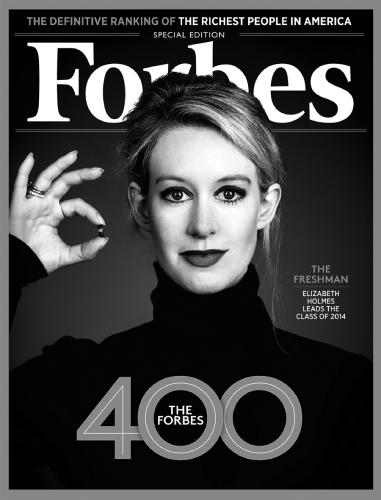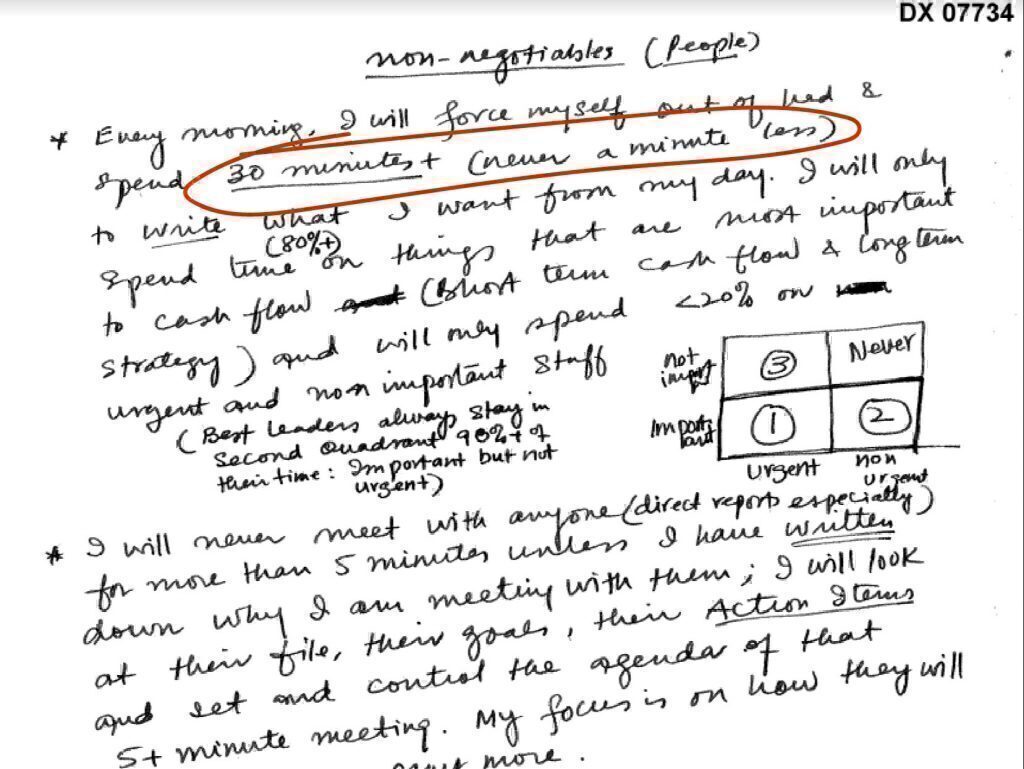The tech world’s latest villain is a woman named Elizabeth Holmes. You may have heard about her trial on the news, or maybe seen the documentary about her fall from grace. Maybe you even read the Wall Street Journal expose that started her downward spiral. We don’t know much about her as a person, save for the carefully curated public image she presented to the world during her glory days — when she was called a female Steve Jobs, and her company, the Apple Computers of the biotech world. But if the media is to be believed, we now know that she is definitely evil…

Her defense at her trial attempted to position her as a victim: she was manipulated by the men in her life, and allegedly abused sexually, which somehow explains why she lied to investors and carried on the shell game that was Theranos for so long. As I write this, the jury is literally still out on whether or not her sob story will garner her any leniency. But the facts of the case are clear: her tech didn’t work, she knew it didn’t work, she lied about it, and — for a time — got rich and famous off of those lies. Eventually her sin, and that of her company, was discovered, and it all unraveled. Her company was destroyed, she was destroyed, and the hope she’d created of a new and easier way to perform medical testing was shown to be a pipe dream. She sold snake oil with the best of them, then got caught. She should be punished.
But I object to the notion that Elizabeth Holmes is some kind of super villain, the first of her kind to come up with this scheme, and pull one over on an innocent and trusting stock market. Heck, Silicon Valley is the home of “fake it til you make it” — an entire culture built on selling B.S. to complicit investors, with the hope of making some unlikely vision a reality. No, I think Elizabeth Holmes’ real crime is that she played the Tech Bro game while being female. She did literally the same thing that a thousand other “entrepreneurs” have done before her, and she did it really, really well for years. She had people believing in, not just her idea, but in her. And like so many before her, she failed. But instead of the embarrassment of that failure being limited to herself, her employees and her shareholders, the embarrassment blew back on a woke culture that needed her to be some kind of proof point, some kind of vindicating example of how feminism can destroy the patriarchy. Elizabeth Holmes wasn’t just a tech hero, she was a culture war hero — and she betrayed those culture warriors by being… the same species as the men she was emulating. Not better than, not some kind of feminist ideal; just another flawed human being. Someone who tried to do something really important, and really hard, and who pushed herself and everyone around her to reach for something insanely great… then when it became evident that it wasn’t working, tried to buy time, stretch the truth, change the goalposts — anything to avoid admitting defeat.
Was she wrong? Definitely.
Was her behavior completely human? Totally.

These are her notes to herself. Comments online suggest these are proof of her manipulative nature. But I don’t see the notes of a coniving con artist, set on deceiving and destroying her way to the top. I see the notes of a struggling human person, trying to discipline her own flaws, work hard enough to be taken seriously, and actually accomplish something for herself and those who depend on her — someone trying do all of that in a place that is disproportionately male-oriented. She didn’t set out to deceive, she set out to succeed. And the fact that she didn’t doesn’t change her worth as a person. The fact that she couldn’t bear to face defeat and lied about it doesn’t mean she has betrayed her gender and should be burned at the stake; it just means she made the same set of mistakes most of us would make in her shoes. The same mistakes that literally hundreds of wannabe Silicon Valley founders have before her. She did all of that while female, but she should face no greater consequences than her male counterparts — many of whom are lauded for the same kinds of failure.
I’m not opposed to feminism: I have two daughters and I want them to be and do whatever they want with their lives. I am opposed to the backlash she’s receiving from the culture she embodied. I’m saying that gender — and culture — factored in to the job she was trying to do — and unfairly so. And I’m saying neither should factor in to the punishment she faces for failing at that job. She doesn’t owe society some special penance because she didn’t succeed at “leaning in.” She’s just a human being who tried something really hard, and failed at it ungracefully. Here’s a list of mostly male-founded companies who fared no better. Let’s not judge her any more harshly for playing the same game while female.



